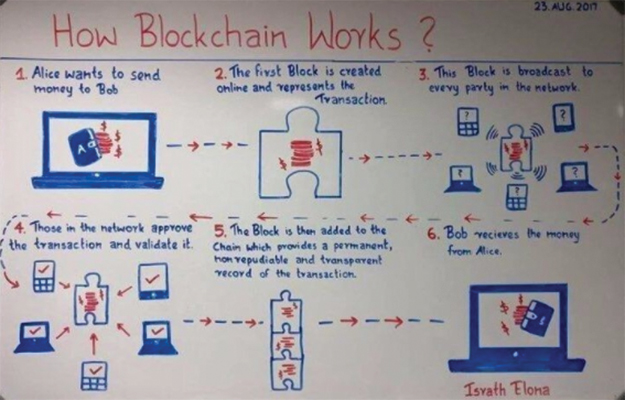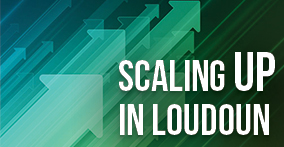
How Will Blockchain Impact Your Future?
Written by Loudoun Tech Coalition committee member, Joel Scharlat, President, IVEA Consulting
The most recent Loudoun County Chamber of Commerce Technology Coalition event highlighted the growing trend of Smart Cities. These networked cities are emerging all over the world and Loudoun is lucky to have one in our own backyard – Loudoun’s first stop on the forthcoming Silver Line extension of the Metro.
The event was one of the best attended Technology Coalition events in recent history. The buzz around the event brought technologists, city planners, members of the professional community (lawyers and doctors), investors, and entrepreneurs together. Some of the discussions and questions that day centered on security. We learned that Smart Cities are about connectedness and ultimately about collecting, sharing, and using data. This begs the question: How do Smart Cities plan on protecting that data as well as the privacy of its citizens, vendors, and visitors?
Some of these localities are turning to a technology called blockchain to help answer this question and provide a layer of security to these ultra-connected cities. If you search for the definition of blockchain on Google, the answer you get back is shortsighted as it ties the blockchain to cryptocurrencies. However, bitcoin and other financial technologies (FinTech) are merely built upon blockchain technology. While the figure below (credited to Israth Elona and pulled from one of a growing number of LinkedIn posts) focuses on monetary transactions, it is the simplest explanation I’ve seen regarding blockchain. As the picture explains, blockchain is a collection of distributed ledgers that record transactions. It shows how blockchain provides the technical means for inserting trust into digital transactions.

Blockchain has the potential to disrupt many industries, not just FinTech. Consider logistics chain management as one use case. Using blockchain along with automated technologies ( sensors to track times, locations, and even temperatures of food items) can create immutable logs of where food has been (origin), how long it has been in transit, and at what temperature it has been stored (freshness). This data can potentially automate and enable trust and transparency in a brand. The boon of Internet of Things (IoT) is another area where blockchain can be useful for inserting trust into transactions. By correlating the data collected by a sensor to the information about that sensor (its location, internet address, etc.), blockchain enables the availability, confidentiality, and integrity of the data. In cybersecurity terms, these devices and the data they collect can be trusted using this construct.
Where else will blockchain have a significant impact? The technology is just coming into our lives, so that answer remains unknown. However, new and innovative use cases continue to emerge. Even the Federal Government is investigating how blockchain can be used through organizations such as the Defense Advanced Research Projects Agency (DARPA) and the military logistics community.
What are Smart Cities all about? Where will blockchain take us? Come join us at the Loudoun County Chamber of Commerce Technology Coalition monthly meetings to be part of these conversations. And look for our next event to engage fellow tech-minded Chamber members in similar topics.
Written by Loudoun Tech Coalition committee member, Joel Scharlat, President, IVEA Consulting
Join us at our upcoming Loudoun Tech Coalition event, in November!
“Scaling Up in Loudoun” Register Here

